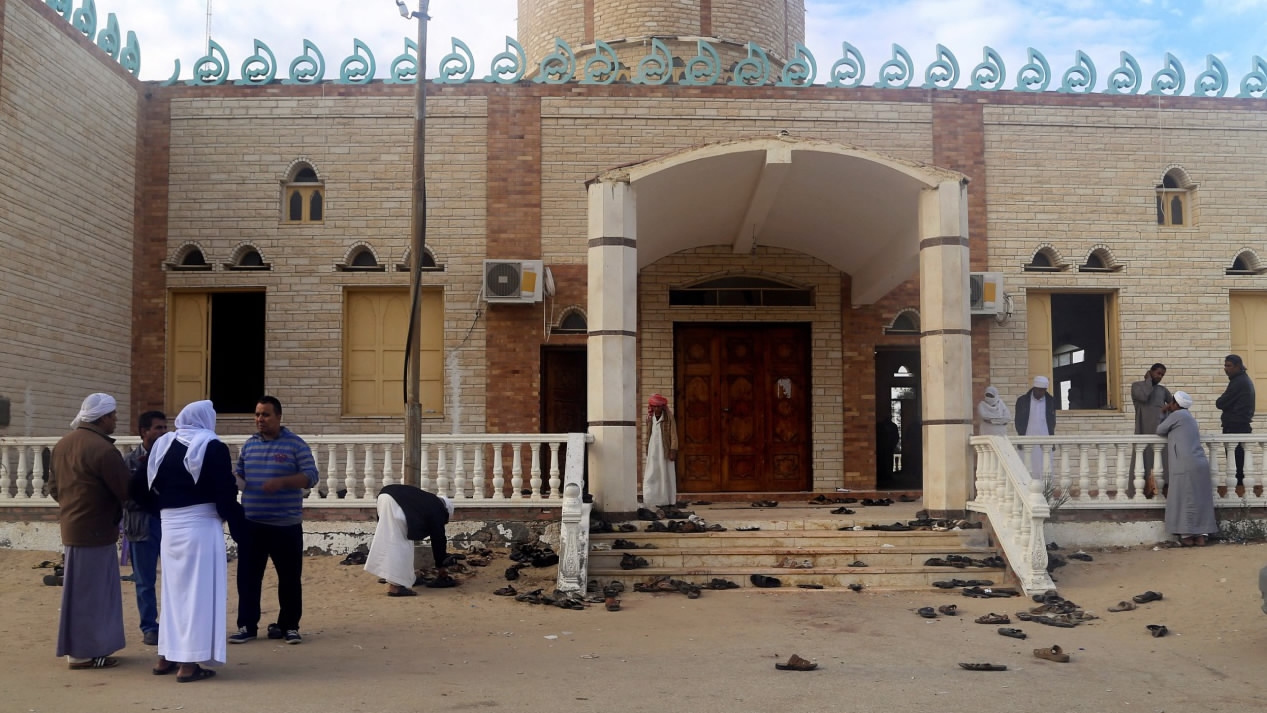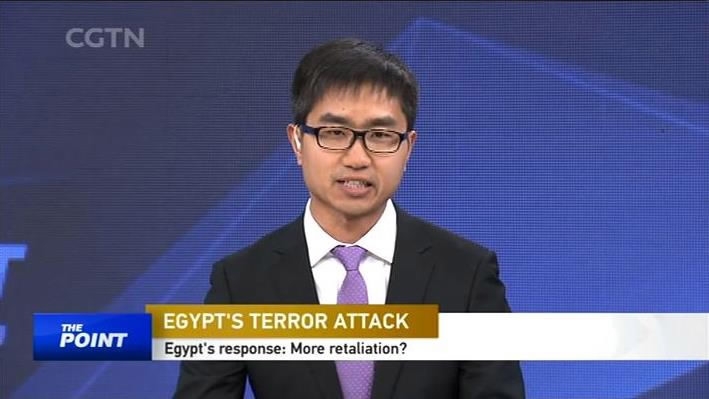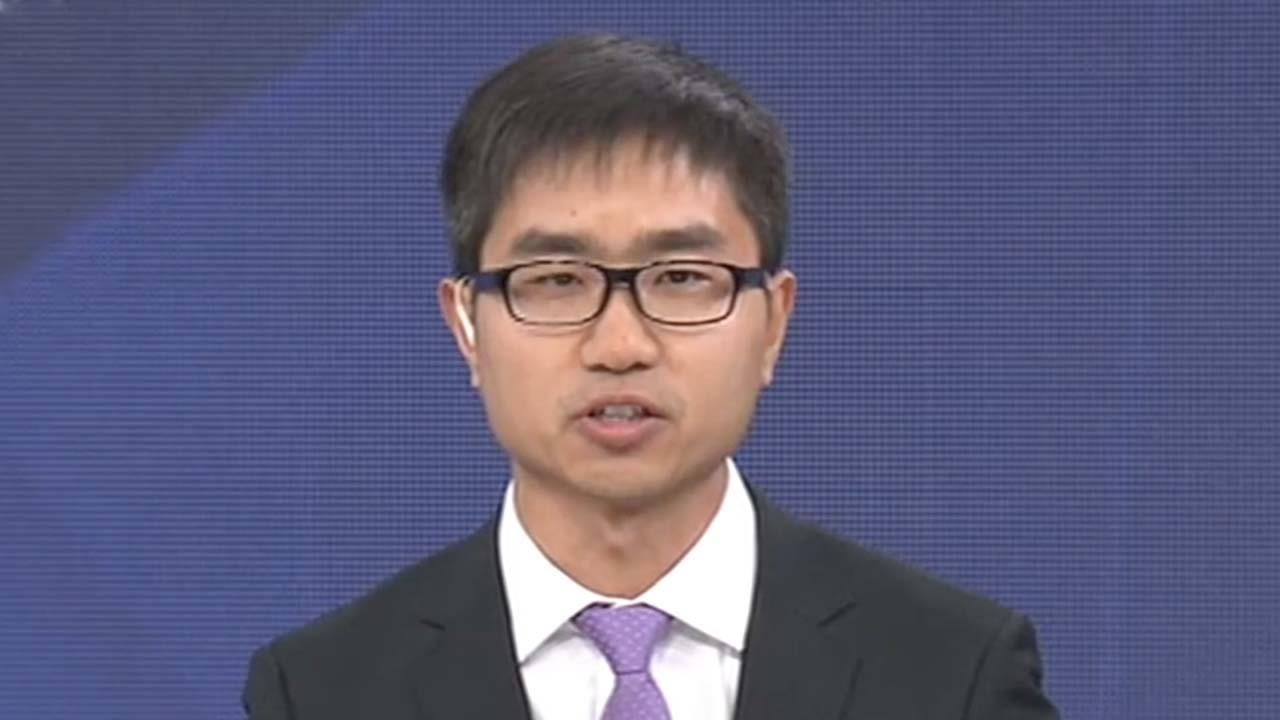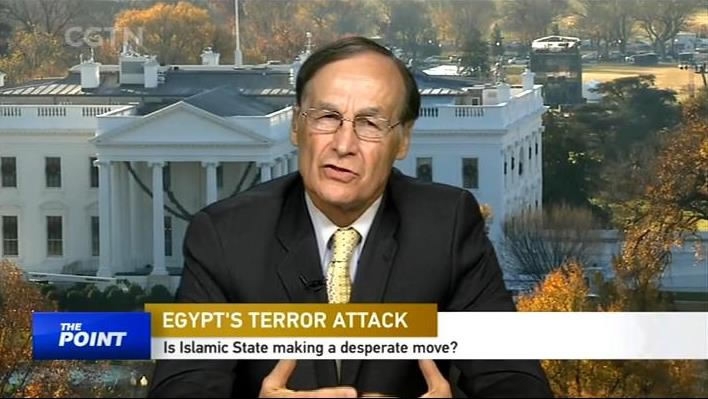
World
18:23, 29-Nov-2017
Egypt mosque attack aimed to drive wedge between Sufis and other Muslims, says expert
CGTN

By CGTN's The Point
“They [radical extremists] are trying to drive a wedge between the Egyptian people and the government,” said Dr. Graeme Bannerman from the Middle East Institute in Washington DC.
His remarks come after a bomb and gun attack at a mosque in Egypt’s Sinai Peninsula on November 24, which killed over 300 worshippers, including at least 27 children.
Locals say the al-Rawda mosque is used by the local Sawarka tribe, which is known to cooperate with security forces against militants.
The mosque was a Sufi mosque, a gathering place for Muslims who follow Sufism. Extremist groups like ISIL promote the idea that Sufism is a heterodox form of Islam.

Yan Shuai, Associate Professor from the Institutes of Contemporary International Relations. /CGTN Photo
Yan Shuai, Associate Professor from the Institutes of Contemporary International Relations. /CGTN Photo
“They are trying to separate Sufis from other Muslims,” Bannerman said.
No group has claimed responsibility for the deadliest attack in Egypt’s modern history, although most people hold ISIL accountable.
“Judging from several signs, it can be certain that ISIL is behind this attack,” said Yan Shuai, Associate Professor from the Institutes of Contemporary International Relations.
Yan thought the Sinai Province, an affiliate of the Islamic State militant group, “was the most active and perhaps the strongest organization in Egypt.”
Its targets are evolving from Westerners, tourists and security personnel to civilians.

“It chose the civilians as a target to send a signal to the general public that if they cooperate with the government, they will be killed. It also shows off the Sinai Province forces to the central ISIL command in Iraq and Syria that this branch is very strong and Sinai Peninsula can be a new headquarters for ISIL,” Yan said.
Egypt’s air force conducted air strikes against suspected terrorists after the country’s President Abdul Fattah al-Sisi vowed to use "brute force” against the group responsible for the attack.
“Egyptian people as a whole are very tolerant with their government as long as they are seen as being active in doing something. That’s why President Sisi has to appear strong and active so as to demonstrate to the people that he’s taken actions to protect them. The question is how long they will last in their support of the government against these atrocious acts,” Bannerman pointed out.

Graeme Bannerman from the Middle East Institute in Washington, DC. /CGTN Photo
Graeme Bannerman from the Middle East Institute in Washington, DC. /CGTN Photo
Yan thought the Egyptian government not only needs to solve local problems where there is a strong local grievance against the government but also they need help from the international community.
“I think you already see considerable assistance coming to Egypt from neighboring states, particularly Saudi Arabia and the UAE,” Bannerman said.
“The question is, will the rest of the international community, the West and East Asia, and other places rally to support the Egyptians too. The problem is going to be will they continue to harass the Egyptian government over what they consider to be human rights violations or will they help the Egyptian government to address the terrorist problems they face,” he concluded.
The Point with Liu Xin is a 30-minute current affairs program on CGTN. It airs weekdays at 9.30 p.m. BJT (1330GMT), with rebroadcasts at 5.30 a.m. (2130GMT) and 10.30 a.m. (0230GMT).
7289km

SITEMAP
Copyright © 2018 CGTN. Beijing ICP prepared NO.16065310-3
Copyright © 2018 CGTN. Beijing ICP prepared NO.16065310-3